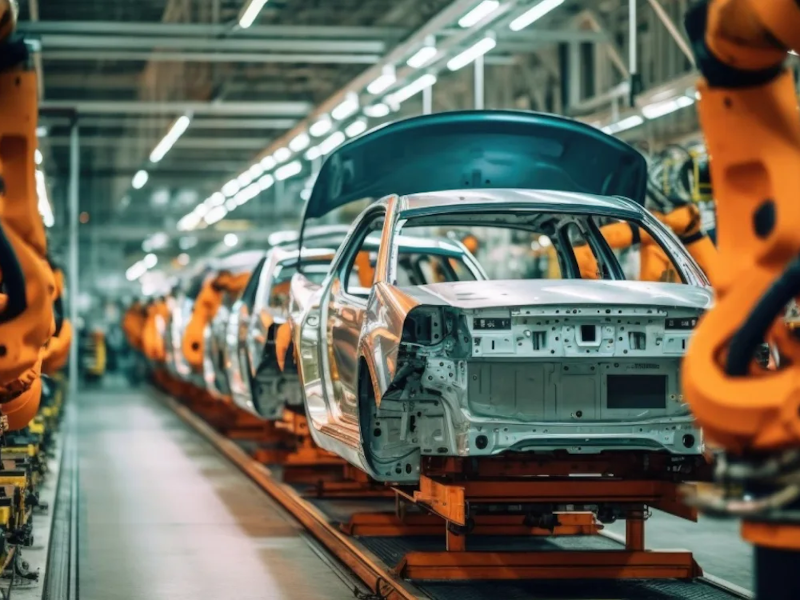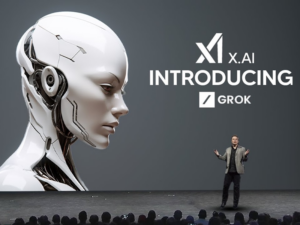TL;DR
- The Catena-X data cloud aims to facilitate data exchange for the automotive industry
- Many suppliers are hesitant to join due to concerns over data sovereignty and standardization
- The project faces startup difficulties, but Trump’s customs policy may provide momentum
- Catena-X is a European cloud concept that could rival hyperscalers like Amazon and Microsoft
Ambitious project for automotive supply chain
The Catena-X data cloud is a prestigious project in the automotive industry, designed to facilitate data exchange and create a more integrated network for automakers and suppliers. However, the project is experiencing startup difficulties, with many suppliers hesitant to join due to concerns over data sovereignty and standardization.
The Catena-X Automotive Network is an open and collaborative data ecosystem that connects industry players throughout the supply chain. The platform uses cloud technology to enable data exchange along the entire value chain, from supplier to production, car manufacturers to car dismantling. However, the platform does not store any data itself, instead directing it to the relevant parties. This peer-to-peer system allows Catena-X to maintain data sovereignty without having to implement its own security frameworks.
Despite its potential, the project faces significant challenges. Many suppliers are hesitant to join due to concerns over data sovereignty and standardization. The automotive industry has a history of closed-data platforms, and suppliers may be wary of sharing their data with competitors. Additionally, the industry is dominated by large players, making it difficult for smaller suppliers to navigate.
However, the project may receive a boost from Trump’s customs policy. The policy could provide momentum for the project, as companies look to reduce their reliance on international supply chains. The Catena-X data cloud could provide a solution for companies looking to streamline their supply chains and improve data exchange.
Broader move towards cloud computing
The Catena-X project is part of a broader trend towards cloud computing in the automotive industry. Cloud computing has become standard for most companies in Germany, with 82% of companies using cloud solutions. The use of private cloud solutions has increased by 5%, and public cloud solutions by 8%. However, there is still a need for overarching systems that can provide a standardized and secure way of exchanging data.
The Catena-X data cloud has the potential to revolutionize the automotive industry by providing a standardized and secure way of exchanging data. The project is supported by major companies such as Volkswagen, BMW, and Mercedes-Benz, and has the potential to reduce costs, improve efficiency, and increase transparency. However, it will require significant investment and cooperation from industry players to overcome the startup difficulties and achieve its full potential.
Conclusion
The Catena-X data cloud is a prestigious project in the automotive industry, with the potential to revolutionize data exchange and create a more integrated network for automakers and suppliers. While the project faces significant challenges, it has the potential to provide a solution for companies looking to streamline their supply chains and improve data exchange. With the support of major companies and the potential boost from Trump’s customs policy, the Catena-X data cloud is an exciting development in the automotive industry.
References
[^1]: Claas Alexander Stroh (February 24, 2022). “Where the Catena-X automotive cloud stands“. Automotive Manufacturing Solutions. Retrieved April 8, 2025.
[^2]: Scarlett Evans (June 2, 2022). “Hannover Messe 2022: Bringing Data Sharing to the Automotive Industry“. IoT World Today. Retrieved April 8, 2025.
[^3]: Jeanette Rohr (March 27, 2025). “Efficient Quality Management in the Automotive Industry with Catena-X and SAP“. SAP News Center. Retrieved April 8, 2025.
[^4]: HANNOVER MESSE (August 8, 2024). “Value creation through dataspaces – Catena-X in practice!“. Facebook. Retrieved April 8, 2025.



